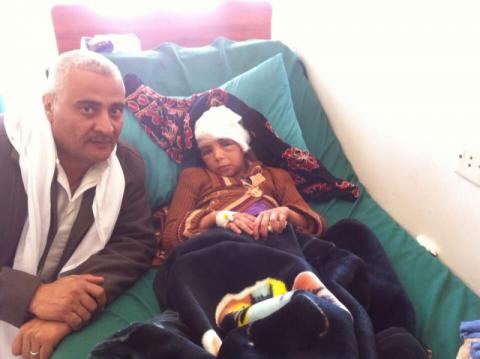
On 19 October 2015, Alkarama sent a communication to the United Nations Special Rapporteur on Extrajudicial, Summary or Arbitrary Executions (SR SUMMEX) regarding the case of 27 schoolgirls victim of two car bombs detonated at a checkpoint controlled by the Houthi-Saleh Coalition in the southwest city of Rada'a, Al Bayda Governorate, in December 2014.
On 16 December 2014, around 4:30pm, two car bombs exploded at a Houthi-Saleh Coalition controlled checkpoint in the city of Rada'a. The first bomb detonated right by the house of Sheikh Abdullah Hussein Idris, the Chairman of Ali Abdullah Saleh's political party − the General People's Congress (GPC) − hitting a school bus transporting girls form the Al Khansa Elementary School for Girls. Guarding Idris' house, the Houthi-Saleh forces opened fire on the direction of the explosion before the second bomb exploded.
During the attack, 9 girls aged between 8 and 10 were killed, while 18 others were severely injured. Due to the severity of their injuries − which included broken bones, burned limbs and splinters all over their bodies, especially on the face and skull – some of the girls had to be transferred to Sana'a to get treatment.
Although the perpetrators of the attack are still unknown, Alkarama highlights that all factions in the Yemeni conflict are bound to respect the rules of international humanitarian law – the law applicable to armed conflicts – and, therefore, have an obligation to distinguish between military and civilian targets and to take all feasible precautions to avoid civilian harm before proceeding with an attack.
"The perpetrators of the attack may still be unknown but the bus that transported the young school girls was clearly identifiable," says Radidja Nemar, Legal Officer for the Gulf region at Alkaram, recalling that, because of their particular vulnerability and needs, children in armed conflicts benefit from special provisions of international law. "Attacking children therefore is not just a serious violation of humanitarian law, but can amount to a war crime," she explains. "This could easily be avoided if all parties to the conflict abide by the basic principles of humanitarian law."
In view of these facts, Alkarama seized the Special Rapporteur on Extrajudicial, Summary or Arbitrary Executions (SR SUMMEX), asking him:
- To call upon all parties to the Yemeni conflict to respect humanitarian law;
- To request the relevant authorities to open a prompt transparent, impartial and independent investigation into this attack;
- To urge the relevant authorities to provide medical care and compensation for the victims of the attack and their families.
For more information or an interview, please contact the media team at media@alkarama.org (Dir: +41 22 734 1008).
